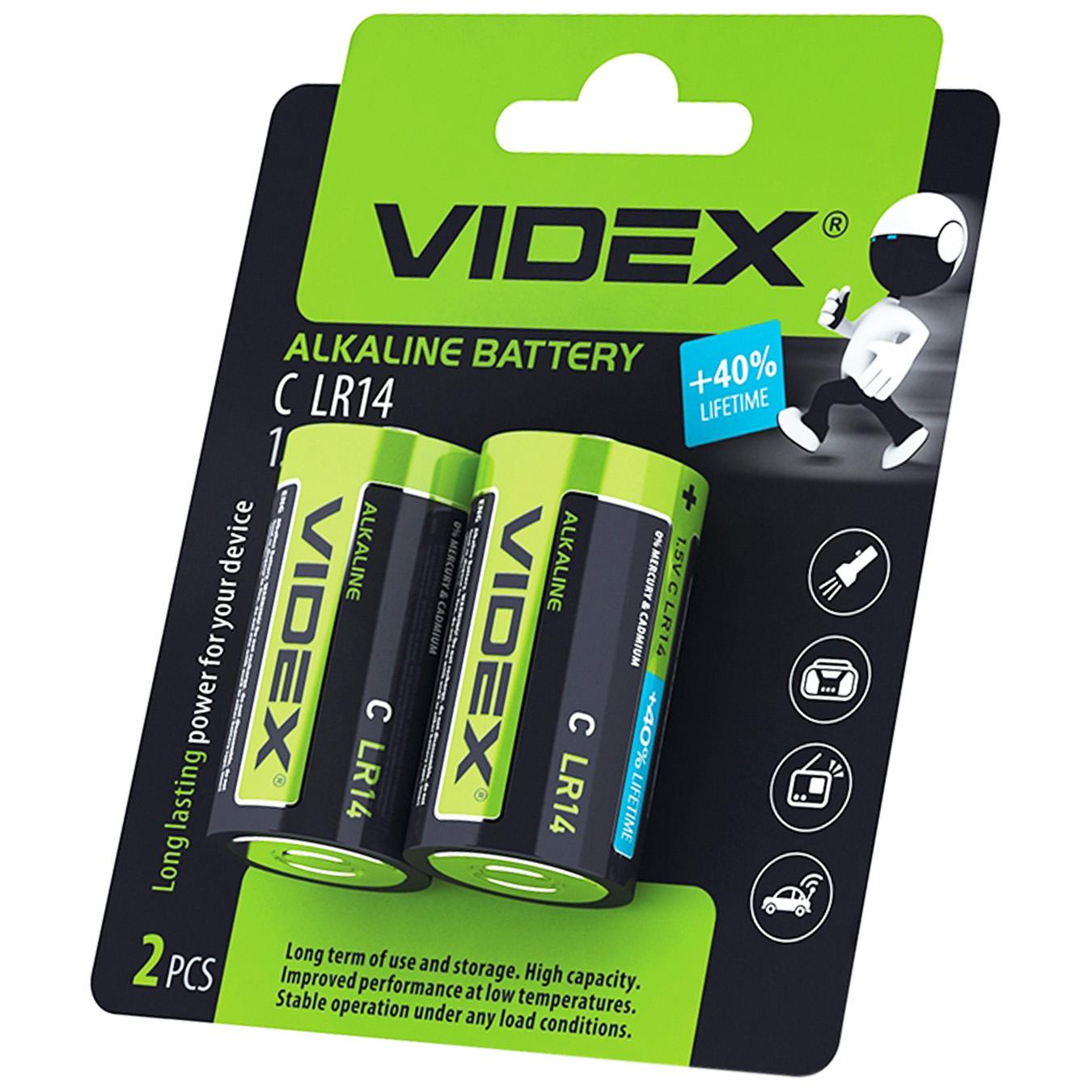

Articles
How To Store A Battery Long Term
Modified: August 28, 2024
Learn the best techniques to store batteries for a long time in this informative article. Explore tips, tricks, and precautions to ensure the longevity of your batteries.
(Many of the links in this article redirect to a specific reviewed product. Your purchase of these products through affiliate links helps to generate commission for Storables.com, at no extra cost. Learn more)
Introduction
Batteries play a crucial role in our daily lives, powering everything from our smartphones and laptops to our cars and household appliances. However, there are times when we may need to store batteries for an extended period, such as during travel or when we have extras on hand. In these situations, it is important to know how to properly store batteries to ensure their longevity and optimal performance.
Improper storage of batteries can lead to reduced capacity, leakage, and even potential safety hazards. Whether you’re storing disposable alkaline batteries or rechargeable lithium-ion batteries, taking the necessary steps to store them correctly can help preserve their lifespan and maintain their functionality.
In this article, we will explore the importance of storing batteries properly, discuss how to choose the right location for battery storage, provide tips for preparing batteries for long-term storage, share guidelines for storing different types of batteries, and offer recommendations for maintaining battery health during storage. By following these guidelines, you can ensure that your batteries are ready for use when you need them, while avoiding unnecessary damage or risk.
Key Takeaways:
- Properly storing batteries is crucial for maintaining performance, preventing hazards, and extending lifespan. Choose the right location, prepare batteries, and follow specific guidelines for each type to ensure optimal condition.
- Regularly checking, rotating, and ventilating stored batteries, as well as avoiding extreme temperatures and proper disposal, are essential for maintaining battery health. Inspect before and after storage to identify potential issues and ensure optimal performance.
Read more: How To Store A Car Battery Long Term
Why is it important to store batteries properly?
Proper storage of batteries is vital for several reasons. First and foremost, it helps to maintain the performance and capacity of the batteries. When batteries are stored inappropriately, their capacity can diminish over time, resulting in reduced runtime and overall effectiveness.
Furthermore, improper storage can lead to leakage or corrosion, which can damage the battery and potentially render it unusable. Leaking batteries not only create a mess but also pose a safety risk, especially if the leaked electrolyte comes into contact with skin or other objects.
By taking the time to store batteries correctly, you can extend their lifespan and ensure that they are in optimal condition when you need them. This is particularly important for rechargeable batteries, which are designed to be used multiple times and require proper care to maintain their performance.
Additionally, proper battery storage is important from an environmental perspective. Batteries contain various chemicals and materials that can be harmful to the environment if not disposed of properly. Storing batteries appropriately reduces the risk of leakage and environmental contamination.
Whether you are storing batteries for a short period or long term, investing in proper storage techniques will not only help you save money in the long run but also contribute to a safer and more sustainable environment.
Choosing the right location for battery storage
When it comes to storing batteries, the location plays a crucial role in maintaining their longevity and performance. Here are some important factors to consider when choosing the right location for battery storage:
- Temperature: Extreme temperatures can have a negative impact on battery health. It is recommended to store batteries at room temperature, ideally between 20°C and 25°C (68°F and 77°F). Avoid storing batteries in areas that experience excessive heat or cold, such as near heaters, radiators, or windows.
- Avoiding moisture: Moisture can lead to corrosion and damage the battery contacts. Therefore, it is important to store batteries in a dry environment. Avoid areas with high humidity, such as bathrooms or basements. Consider using airtight containers or storage bags to protect the batteries from moisture.
- Avoiding direct sunlight: Sunlight can cause batteries to overheat and deteriorate. It is best to store batteries in a location where they are not exposed to direct sunlight. Choose a cool, shaded area for storage.
- Security: Store batteries in a secure location where they are protected from physical damage or potential accidents. Keep them out of reach of children and pets to prevent accidental ingestion or tampering.
- Away from flammable materials: Batteries contain chemicals that can be flammable under certain conditions. To minimize any risks, store batteries away from flammable materials such as gasoline, cleaning agents, or other combustible substances.
By selecting an appropriate storage location that meets these criteria, you can help prolong the life of your batteries and ensure they are ready for use when you need them.
Preparing batteries for long-term storage
Properly preparing batteries for long-term storage is essential to maintain their performance and prevent damage during inactive periods. Follow these steps to ensure your batteries are ready for storage:
- Check battery status: Before storing batteries, it is important to check their current status. Dispose of any damaged or leaking batteries properly. For rechargeable batteries, make sure they are partially discharged before storage, as fully charged batteries can self-discharge over time.
- Clean the batteries: Use a clean cloth or alcohol wipes to clean the battery contacts or terminals. This helps remove any dirt, dust, or corrosion that may have accumulated, ensuring proper electrical conductivity.
- Remove batteries from devices: If you are storing batteries that are currently in electronic devices, remove them before storage. Leaving batteries in devices for long periods can lead to power drain, leakage, or potential damage caused by heat or electrical issues.
- Separate batteries: Store batteries individually or in separate compartments to prevent contact between positive and negative terminals. This helps eliminate the risk of short-circuiting, which can cause overheating or damage to the batteries.
- Use appropriate packaging: To further protect batteries during storage, consider using the original packaging, battery cases, or storage containers designed specifically for batteries. These containers provide an additional layer of insulation and protection against impacts or accidental contact with other objects.
By following these preparation steps, you can significantly prolong the life of your batteries and ensure they function optimally when you need them again. Remember to always follow the manufacturer’s recommendations for battery storage, as different battery types may require specific instructions.
Store batteries in a cool, dry place at room temperature. Avoid extreme temperatures and humidity, as they can reduce the battery’s lifespan. Keep them in their original packaging or in a plastic case to prevent contact with metal objects.
Storing different types of batteries
Different types of batteries have specific storage requirements due to variations in chemistry and construction. Here are some guidelines for storing common types of batteries:
- Alkaline batteries: Alkaline batteries, such as AA or AAA batteries, are commonly found in household devices. These batteries can be stored at room temperature in a dry location. It is best to store them in their original packaging or airtight containers to prevent contact with other metals or moisture.
- Lithium-ion batteries: Lithium-ion batteries are commonly used in smartphones, laptops, and other portable electronics. Before storing lithium-ion batteries, ensure they are partially discharged to around 40-50% of their capacity. Store them in a cool, dry place away from direct sunlight. If possible, store them in a fireproof container or pouch for added safety.
- Nickel-metal hydride (NiMH) batteries: NiMH batteries are commonly used in rechargeable devices like digital cameras and game controllers. For long-term storage, partially discharge them to around 40-50% of their capacity. Store them in a cool, dry location to minimize self-discharge. Consider using airtight containers or storage cases to prevent moisture and contact with other objects.
- Lead-acid batteries: Lead-acid batteries are primarily used in vehicles and UPS systems. These batteries require specific care during storage. Fully charge the battery before storage to avoid sulfation. Store them in a cool, well-ventilated area. Periodically check and maintain the electrolyte levels if applicable.
- Nickel-cadmium (NiCd) batteries: NiCd batteries are less common nowadays but are still found in some older devices. Completely discharge NiCd batteries before storage to prevent memory effect. Store them in a cool, dry location, and avoid prolonged exposure to heat or direct sunlight.
Remember to check the manufacturer’s guidelines for specific storage recommendations for each type of battery. Following these guidelines will help maximize the lifespan and performance of your batteries during storage.
Read more: How To Store Barley Long Term
Tips for maintaining battery health during long-term storage
While storing batteries properly is important, there are additional steps you can take to ensure their health and performance during long-term storage. Follow these tips to maintain battery health:
- Regularly check battery status: Periodically inspect stored batteries to ensure there are no signs of leakage, swelling, or corrosion. If you notice any abnormalities, handle them with care and dispose of them properly.
- Rotate batteries: If you have multiple batteries in storage, consider rotating them periodically. Use the stored batteries and replace them with freshly charged ones. This helps prevent self-discharge and ensures all batteries are in good working condition when you need them.
- Keep batteries dry: Moisture can damage batteries and cause corrosion. Make sure the storage area is dry and free from any moisture or humidity. Consider using desiccants, such as silica gel packets, to absorb any excess moisture.
- Avoid extreme temperatures: High temperatures can accelerate self-discharge, while low temperatures can impair battery performance. Store batteries in a temperature-controlled environment. If extreme temperatures are unavoidable, consider using insulated containers or temperature-controlled storage units.
- Do not mix old and new batteries: When using stored batteries, avoid mixing old and new batteries in the same device. Mixing different battery capacities or conditions can lead to uneven discharge and potentially damage the batteries.
- Ensure proper ventilation: If you are storing large quantities of batteries or lead-acid batteries in an enclosed space, ensure proper ventilation to prevent the accumulation of any flammable gases or fumes that may be released during storage.
- Follow disposal guidelines: If you no longer need a stored battery or it reaches the end of its lifespan, dispose of it properly according to local regulations. Many communities have specific recycling programs for batteries to prevent environmental contamination.
By implementing these tips, you can enhance the longevity and performance of your stored batteries, ensuring they remain in good condition until you are ready to use them.
Recommendations for checking battery status before and after storage
Checking the status of batteries before and after storage is essential to ensure their reliability and performance. Here are some recommendations for checking battery status:
Before Storage:
- Inspect for damage: Thoroughly examine each battery for any signs of damage, leakage, or corrosion. If you find any damaged batteries, dispose of them properly.
- Test the voltage: Use a multimeter or battery tester to measure the voltage of each battery. Compare the readings to the manufacturer’s specifications. If the voltage is significantly lower than expected, consider recharging the battery before storage.
- Clean the terminals: Wipe the battery terminals or contacts with a clean cloth or alcohol wipe to remove any dirt or corrosion. Ensure good electrical conductivity for optimal performance.
After Storage:
- Inspect for damage: Once you retrieve the batteries from storage, carefully inspect them again for any signs of damage, leakage, or corrosion. Discard any batteries that show such signs.
- Check voltage: Test the voltage of each battery using a multimeter or battery tester. Compare the readings to the expected voltage levels. If the voltage has significantly dropped during storage, the battery may require recharging or replacement.
- Test functionality: If possible, test the batteries in the intended devices or equipment to ensure they are still functioning properly. This will help identify any performance issues or deficiencies after storage.
By following these recommendations, you can ensure that the batteries are in good working condition both before and after storage. Regular checks and maintenance will help you identify any potential problems and take the necessary actions to maximize battery performance and lifespan.
Conclusion
Properly storing batteries for long-term periods is crucial to maintain their performance, extend their lifespan, and prevent potential hazards. By following the guidelines and recommendations outlined in this article, you can ensure that your batteries are in optimal condition when you need them.
Choosing the right location for battery storage, such as a cool and dry area away from direct sunlight, helps to preserve battery health. Preparing batteries before storage by checking their status, cleaning the contacts, and separating them properly further ensures their longevity.
It is important to store different types of batteries according to their specific requirements. Whether it’s lithium-ion batteries, alkaline batteries, or lead-acid batteries, following the proper storage guidelines for each type will help maintain their individual performance and prevent damage.
To maintain battery health during long-term storage, regular checks, rotation, and proper ventilation are recommended. Avoid mixing old and new batteries and dispose of any damaged or expired batteries responsibly.
Lastly, before and after storing batteries, it is essential to inspect for any damage or leakage, test voltage levels, clean the terminals, and ensure proper functionality. These steps will help identify any potential issues and allow you to take the necessary actions for optimal battery performance.
By implementing these practices, you can store your batteries with confidence, knowing that they will remain in good condition until you need them. Taking the time to store batteries properly not only ensures their longevity but also contributes to a more sustainable and environmentally friendly approach to battery usage.
Frequently Asked Questions about How To Store A Battery Long Term
Was this page helpful?
At Storables.com, we guarantee accurate and reliable information. Our content, validated by Expert Board Contributors, is crafted following stringent Editorial Policies. We're committed to providing you with well-researched, expert-backed insights for all your informational needs.















0 thoughts on “How To Store A Battery Long Term”